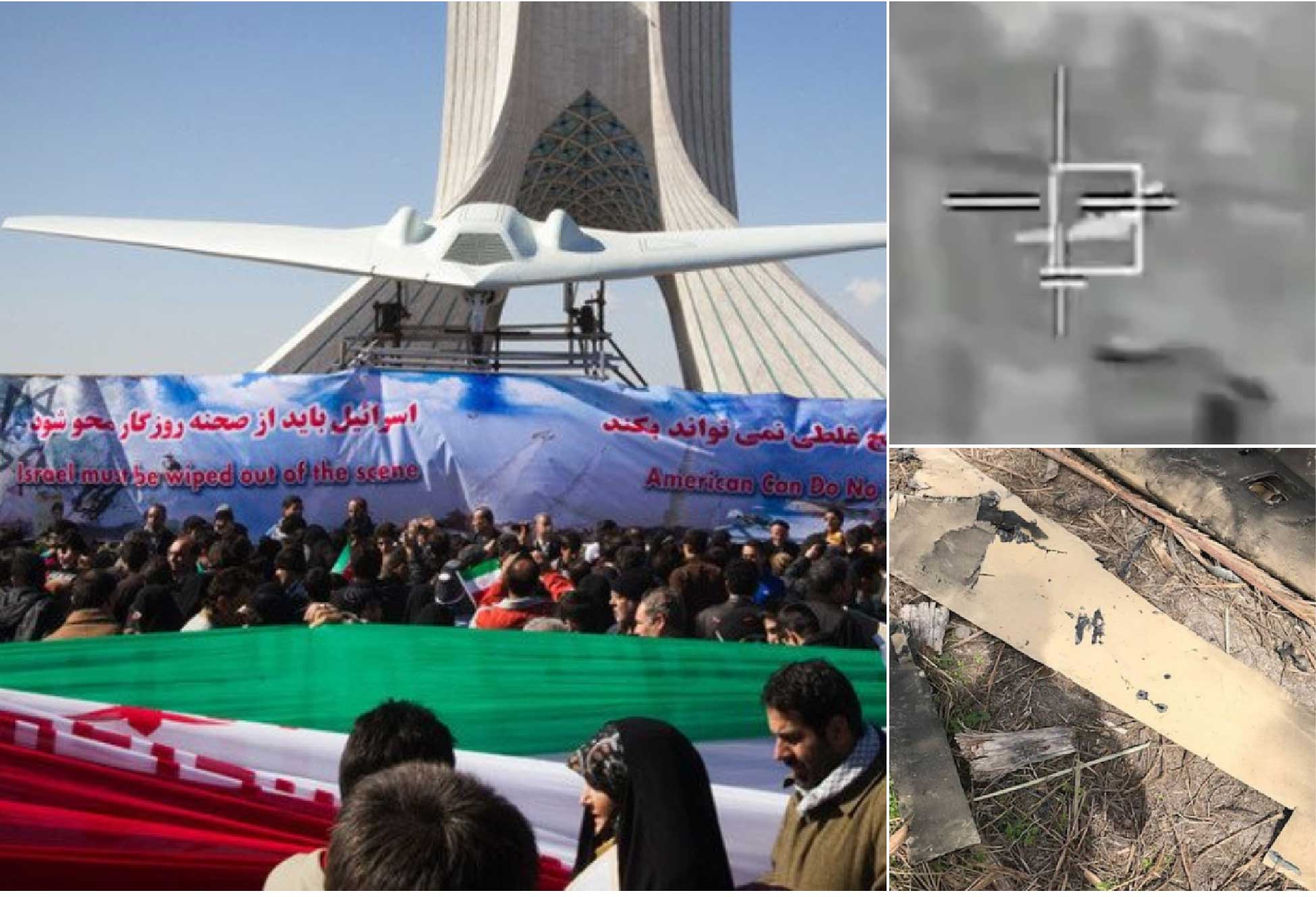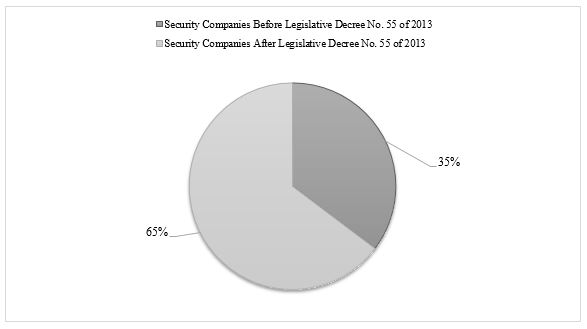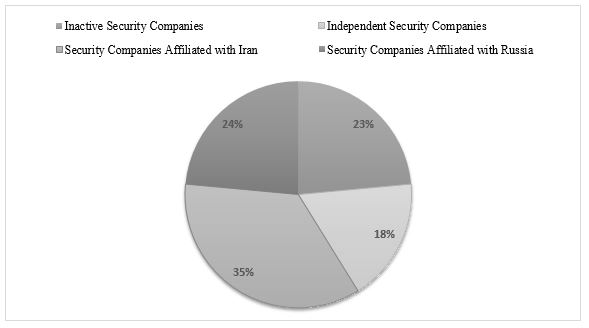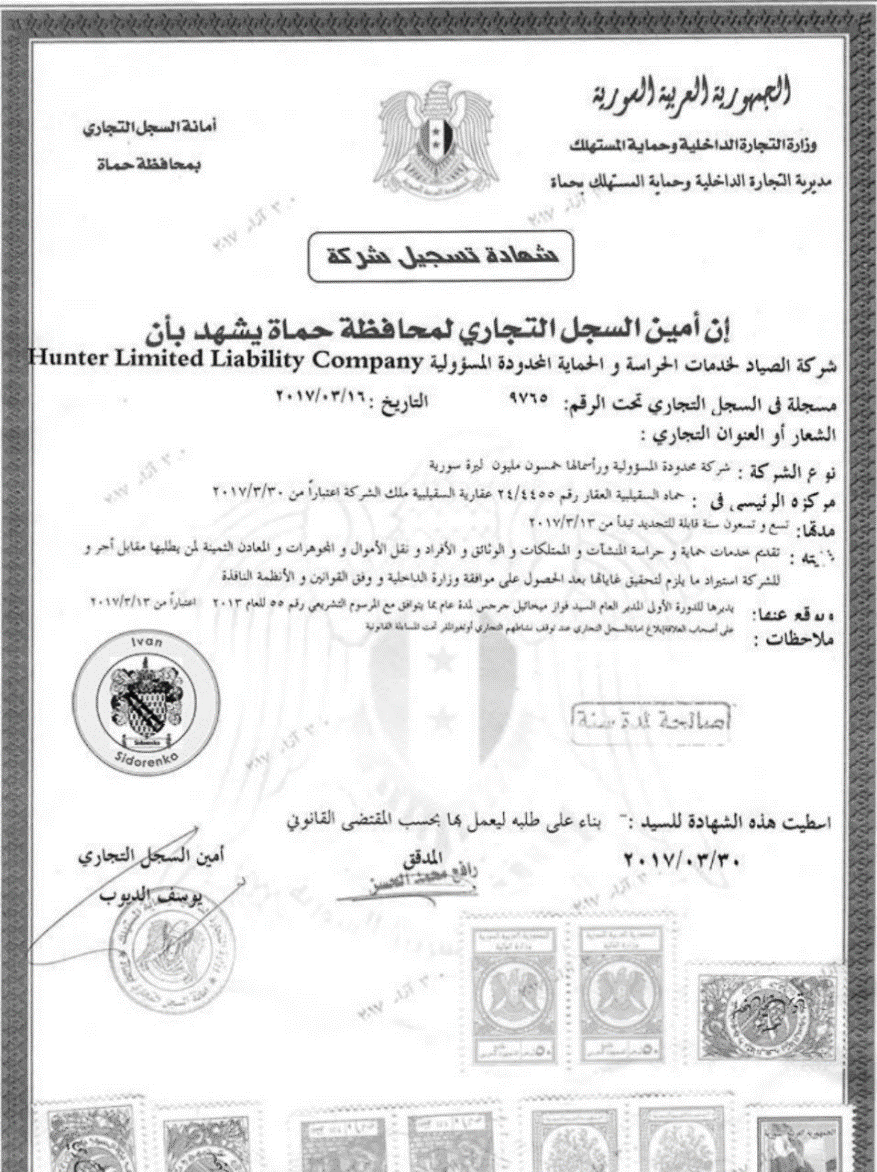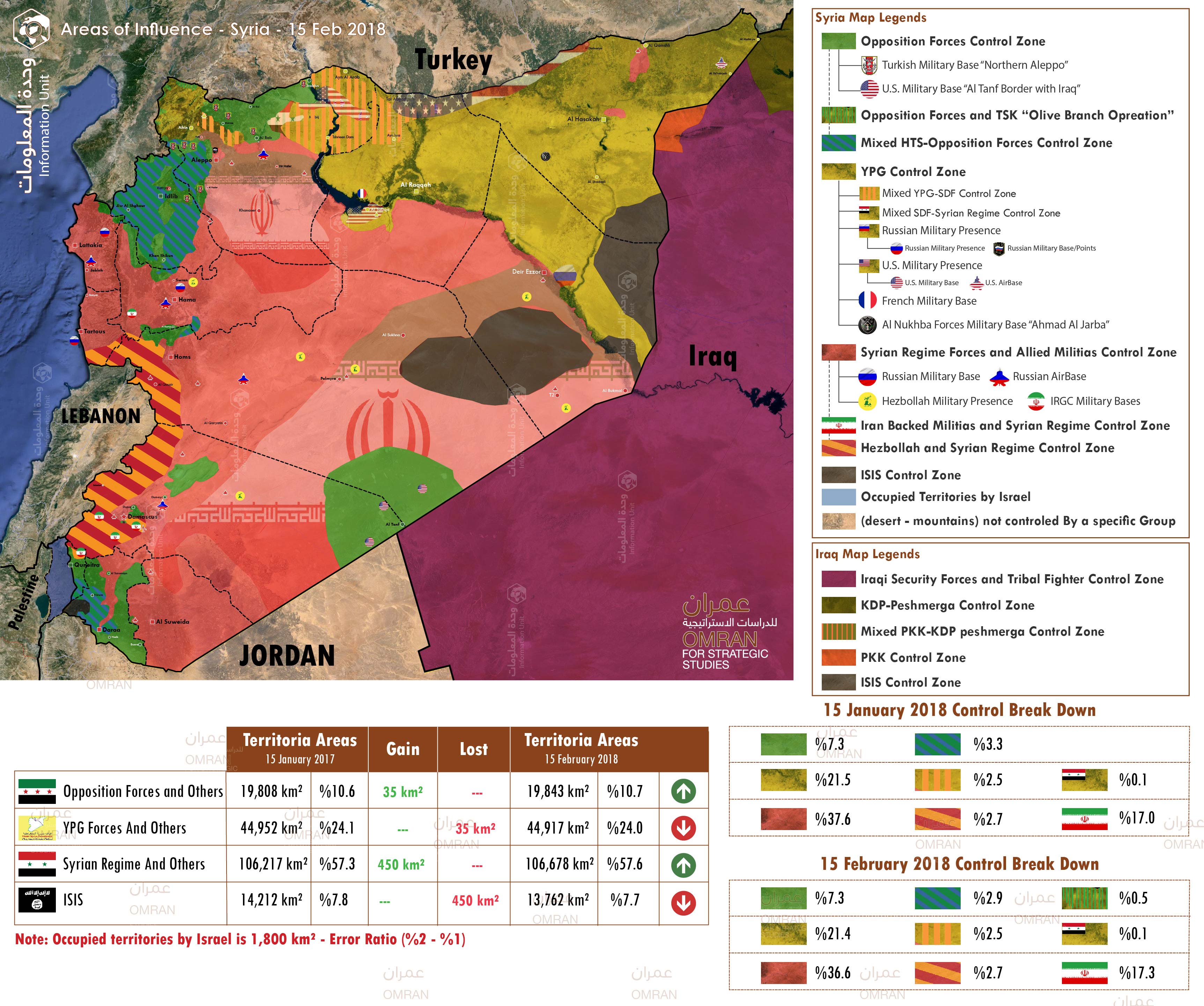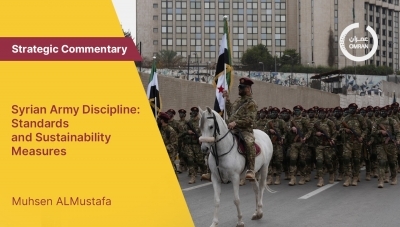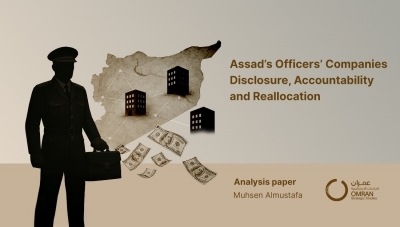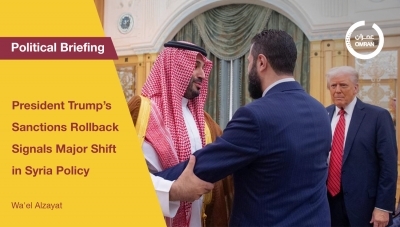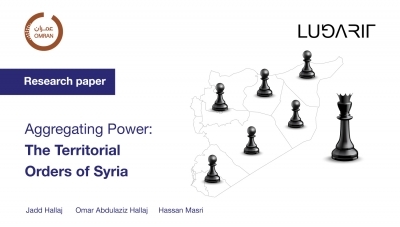Media Appearance
Profiling Top Private Security Companies in Syria
Executive Summary
- Before May 2013, private security companies’ tasks and activities in Syria were basically limited to securing shopping malls, banks, and concerts.
- The growing need for legal armed forces not bound by government regulation led to the issuance of Legislative Decree No. 55.
- The Syrian regime’s international allies (Iran and Russia) found what they were looking for in the private security companies.
- Iran used private security companies to institute Iranian presence and influence in sensitive areas in Syria without worrying about whether they can maintain this presence in the future, because private security companies are part of a registered Syrian company.
- Iran used these security companies to maintain presence on the strategic (Baghdad-Damascus) highway in the eastern desert of Syria.
- Russia used private security companies to legalize some local militia fighters that it recruited due to the lack of Syrian army manpower.
- After the reconciliation of some ex-Free Syrian Army (FSA) factions with the Syrian government, Russia had limited choices regarding how it could use these reconciled fighters. At first, Russia used the 5th Corps, which created issues because many Syrian army forces refused to fight alongside ex-FSA fighters. That pushed the Russian military to use these private companies such as the “ISIS Hunters” in order to mobilize and take advantage of the ex-FSA manpower.
Introduction
There are many private security companies in Syria. These companies provide special protection for anyone who needs security services. Some of these companies provide types of services that do not fall under the category of “security” and are instead more like private military operations, such as role played by the “ISIS Hunters” against ISIS in the Syrian desert.
On 5 August 2013, the Syrian president issued Legislative Decree No. 55 regarding licenses for private protection and security companies. Before Decree No. 55, the number of the private security companies in the country was limited. The few private security companies that did exist were primarily funded by well-known businessmen and their main duties were providing security to banks, shopping malls, and sometimes musical concerts. Starting in early 2017, new private security companies began to emerge with much important tasks as well as stronger international allies or even foreign indirect ownership.([1])
Legislative Decree No. 55 of 2013
Agencies and sectors that are concerned with Legislative Decree No. 55:
- Ministry of Interior
- National Security Office
- Companies working in the field of protection, private custody, and the transfer of valuables such as money, jewelry, and precious metals.
In order to receive a license, a private security company must meet the following conditions:
- Be fully owned by holders of Syrian Arab nationality.
- Have capital of no less than fifty million Syrian pounds (SP).
- Its headquarters must be in the same area of operations.
- Be registered in the Commercial Register.
Additionally, the owners, partners, and management of the company shall be required to:
- Have been an Arab-Syrian for at least five years.
- Be at least 35 years of age.
- Have at least a high school certificate.
- Have no expulsion or dismissal from public service on their record.
Private security companies are classified into three categories:
1st category: companies that have 801 guards and above.
2nd category: companies that have between 501-800 guards.
3rd category: companies that have between 300-500 guards.
Top Private Security Companies and their International Allies
| English Name | Arabic Name | License Date | HQ | International Relations |
| Professionals Company | شركة المحترفون | 29 April 2012 | Damascus | Independent |
| Shorouk | شركة شروق | 12 November 2012 | Damascus | Independent |
| Al-Husn | شركة الحصن | 23 March 2013 | Latakia | Independent |
| Qasioun | شركة قاسيون | 28 October 2013 | Damascus | Iran |
| IBS | IBS | 27 November 2013 | Damascus | Iran |
| Al-Watania | شركة الوطنية | 28 March 2016 | Damascus | Russia |
| ISIS Hunters | صيادين الدواعش | 16 March 2017 | Hama | Russia |
| Al-Qalaa | شركة القلعة | 10 October 2017 | Damascus | Iran |
| Al-Areen | شركة العرين | 19 October 2017 | Damascus | Russia |
| Sanad | شركة سند | 22 October 2017 | Damascus | Russia |
| Fajr | شركة فجر | 02 January 2018 | Aleppo | Iran |
| Alpha | شركة ألفا | 15 February 2018 | Aleppo | Iran |
| Al-Hares | شركة الحارس | 08 May 2018 | Damascus | Iran |
The power of each company is related to the number of secured locations it has, the type of operations it does, and the weapons and armored vehicles that it owns.
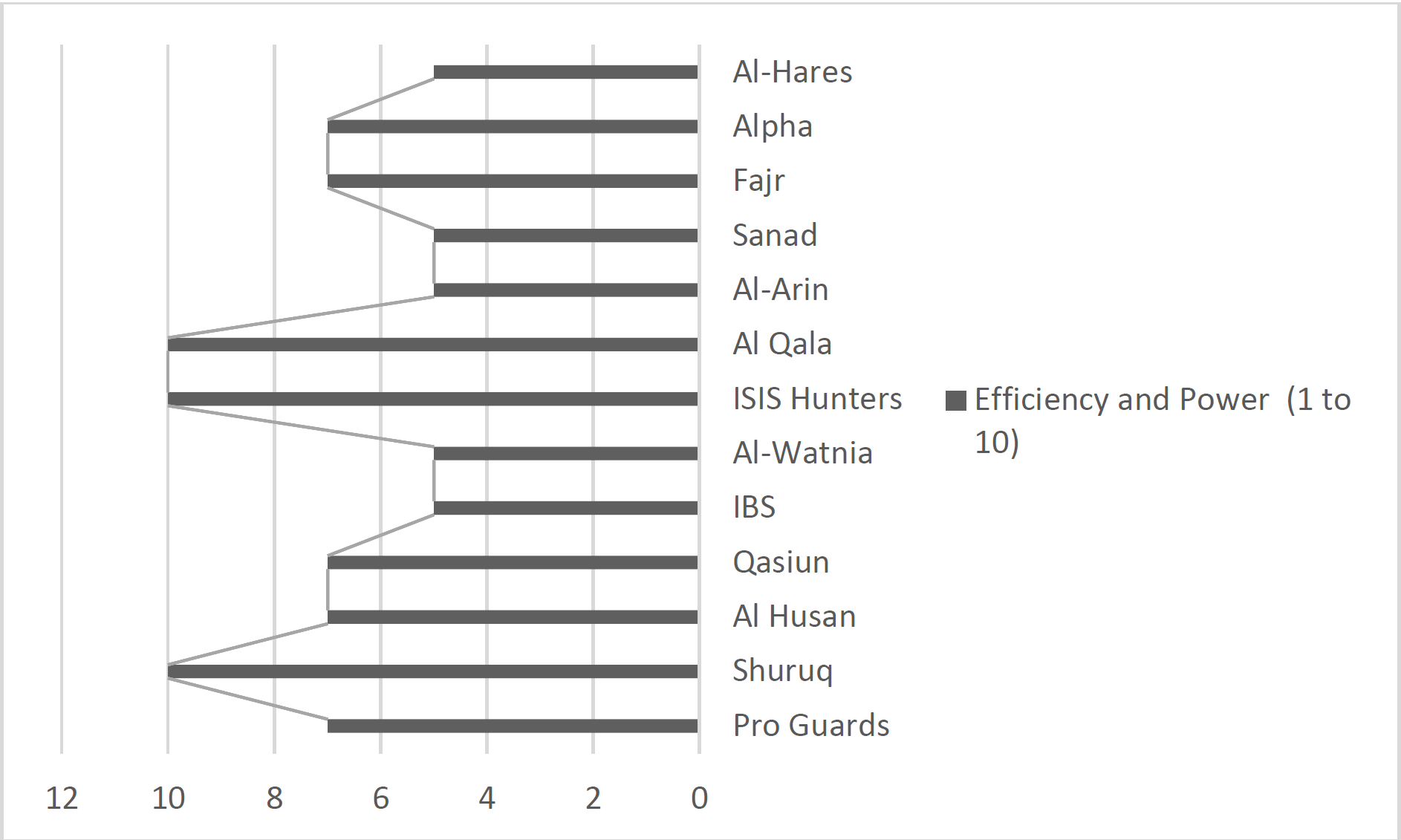
Shorouk Company for Security Services (Independent)
Shorouk was established on 12 November 2012. It is run by retired state security officers and its guards have played a major role in suppressing many demonstrations in Damascus. The company has maintained its independence despite the fact that Iran has made several offers to the company’s board members to try and gain their loyalty. Shorouk’s headquarters is in the governorate building in al-Zahra, Damascus.
| Shorouk Company Board Members | |
| Retired Brigadier | General Gamal el-Din Habib |
| Retired Brigadier | Brigadier Ragheb Hamdoun |
| Retired Lieutenant | Colonel Ali Younis |
These officers, known for their good relations with Hafez Makhlouf and Yasser Qashlq, played an essential role in the events of Hama in 1982. The most important of these officers is Ali Younis, who was the most powerful figure in state security before retiring as a lieutenant.
| Main Contracts in 2017/2018 | |
| Name | Location |
| Al-Khair markets | Ein Tarma - Damascus countryside |
| Restaurant and nightclub Areas | Bab Touma in Damascus city |
| Sham City | Kafr Suseh in Damascus city |
| Cusco Mark | Restaurant chain in Damascus and Aleppo cities |
| Ski Land | Shami Village |
| Al-Badia Cement Factory | Abu Shammat area in al-Dumayr |
Shorouk has more than 2,000 employees, including the administrative and security personnel, and they all wear a special uniform with a logo of the company.
The security personnel are paid according to their specific tasks, with a salary range between 1,500 to 4,000 SP per day.
ISIS Hunters (Affiliated With Russia)
ISIS Hunters is a private security company formed, funded, and trained by the Russian military in Latakia to fight ISIS in the Syrian desert on the beginning of 2017, and after that the Wagner group took over responsibility for their training. ([2])
Originally, the ISIS Hunters’ main task was protecting the liberated gas and oil fields in western Palmyra, along with the weapons storage facilities near the T-4 Military Airport.
However, the activities of the ISIS Hunters quickly expanded into combat engagements including the liberation of the city of Palmyra and then crossing the Euphrates to clear ISIS from its eastern bank.
In its initial stages, the ISIS Hunters served more as a private entity within the Syrian Army (Russian military advisor in Khmeimim airbase instructed that) and its only task was to fight ISIS. This role changed after the company’s official registration in March 2017 under Decree 55.
In 2018, ISIS Hunters became more like a private security company but they maintained special privileges to use the army’s equipment because of their initial role fighting ISIS.
After the Syrian military and its allies captured Palmyra in 2017, the Russian-backed ISIS Hunters were tasked with guarding the town against the return of ISIS, clearing the environs, retaking the Palmyra gas fields, and keeping roads such as the Homs-Palmyra highway open. When the Syrian military and its allies lifted the siege of the Deir Ezzor military airport on 10 September 2017, the ISIS Hunters were occupied with clearing the area around Kusham on the east bank of the Euphrates, around 15 kilometers southeast of Deir Ezzor city. On 17 November 2017, the ISIS Hunters announced that they had fully secured Kate Island north of the city of Deir Ezzor and captured 250 ISIS fighters.
Currently, the ISIS Hunter main tasks include: securing the pipelines in eastern Homs, maintaining a presence in al-Talaa Camp in Deir Ezzor, and securing all the checkpoints between the Syrian regime and Syrian Democratic Forces (SDF) in Deir Ezzor province. Their most recent military activity was a very limited role in the battles of Eastern Ghouta in 2018.
Al-Qalaa Company for Security Services (Affiliated with Iran)
Al-Qalaa Company was established on 10 October 2017 and is managed by the Syrian businessman Mohammed Dirki. Like several other similar companies, in the beginning al-Qalaa had a very limited scope of work. In February 2018, a group of security men and women from al-Qalaa in black uniforms equipped with small machine guns were spotted in the Sayyida Zainab Distract of Damascus. Their main role was to secure a Shi’ite convoy from Iran, Lebanon, and Iraq that was visiting the Shi’ite holy sites. Iran’s main reason for creating and funding al-Qalaa was to protect these pilgrimage convoys, after several incidents in which Shi’ite convoys were targeted by in improvised explosive devices (IEDs) in Damascus city.
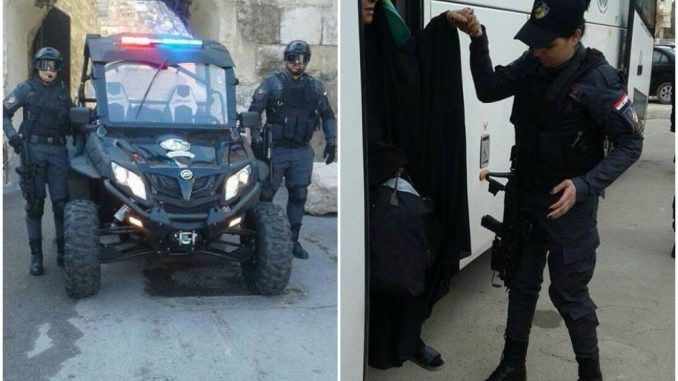
After the Syrian military and its allies recaptured more of the Syrian desert and Eastern Homs Desert they simply required more forces to secure these areas, in April 2018 the Syrian Interior Ministry (and Russia) approved al-Qalaa to be equipped with advanced weaponry in order to assist other groups such as the ISIS Hunters in securing the road, pipelines, and other locations in the desert.
Immediately after al-Qalaa was granted this contract, they received 25, 4x4 advanced trucks equipped with heavy machine guns, and were deployed to eastern Homs, southern Raqqah, and parts of the main Deir Ezzor-Homs highway.

Short Promotion video published on April 2018, https://goo.gl/c9ErhM
During the 2018 Damascus International Fair, al-Qalaa general manager talked about how the company had expanded their services and starting in May 2018, they provided the following:
- Protection of facilities.
- Protection of Shi’ite convoys.
- Protection of commercial convoys.
- Engineering Unit.
- Anti-Narcotics Unit.
- Emergency Unit.
- Support Unit for military operations.
([1]) Indirect ownership: the company only provides security tasks for Iran and Russia, despite being owned and managed by Syrians.
([2]) "Wagner group" is a Russian paramilitary organization associated with Yevgeny Prigozhin, a Russian oligarch and close associate of President Vladimir Putin. Vagner commanders have fought for the company both in Syria and, before that, in support of Russia-backed separatists in eastern Ukraine.
Map of Control and Influence in Syria February 16, 2018
Map of Control and Influence in Syria:
- Turkish Armed Forces (TAF) and the Free Syrian Army (FSA) captured several locations in the western region of Afrin from the YPG/YPJ. Separately, reports emerged claiming that the TAF and the FSA had deployed additional troops and equipment west of the Jandaris district indicating an upcoming offensive.
Pro-YPG sources said that Kurdish forces had repelled Turkish attacks in the districts of Rajo and Bulbul, and claimed that more than 20 Turkish-backed fighters were reportedly killed there.
February 5: A massive Kurdish military convoy entered the Afrin region to support the YPG in its fight against the Turks. As a result, many issues were raised:
- The number of vehicles that left Manbij was 36, but 41 entered Afrin, meaning five extra vehicles joined the convoy from areas controlled by pro-Iran forces.
- After the convoy entered Afrin from a checkpoint in Nubl and Zahraa, areas controlled by pro-Iran forces, multiple Iranian weapons were spotted in the possession of Kurdish forces. Below is a full list of these weapons.
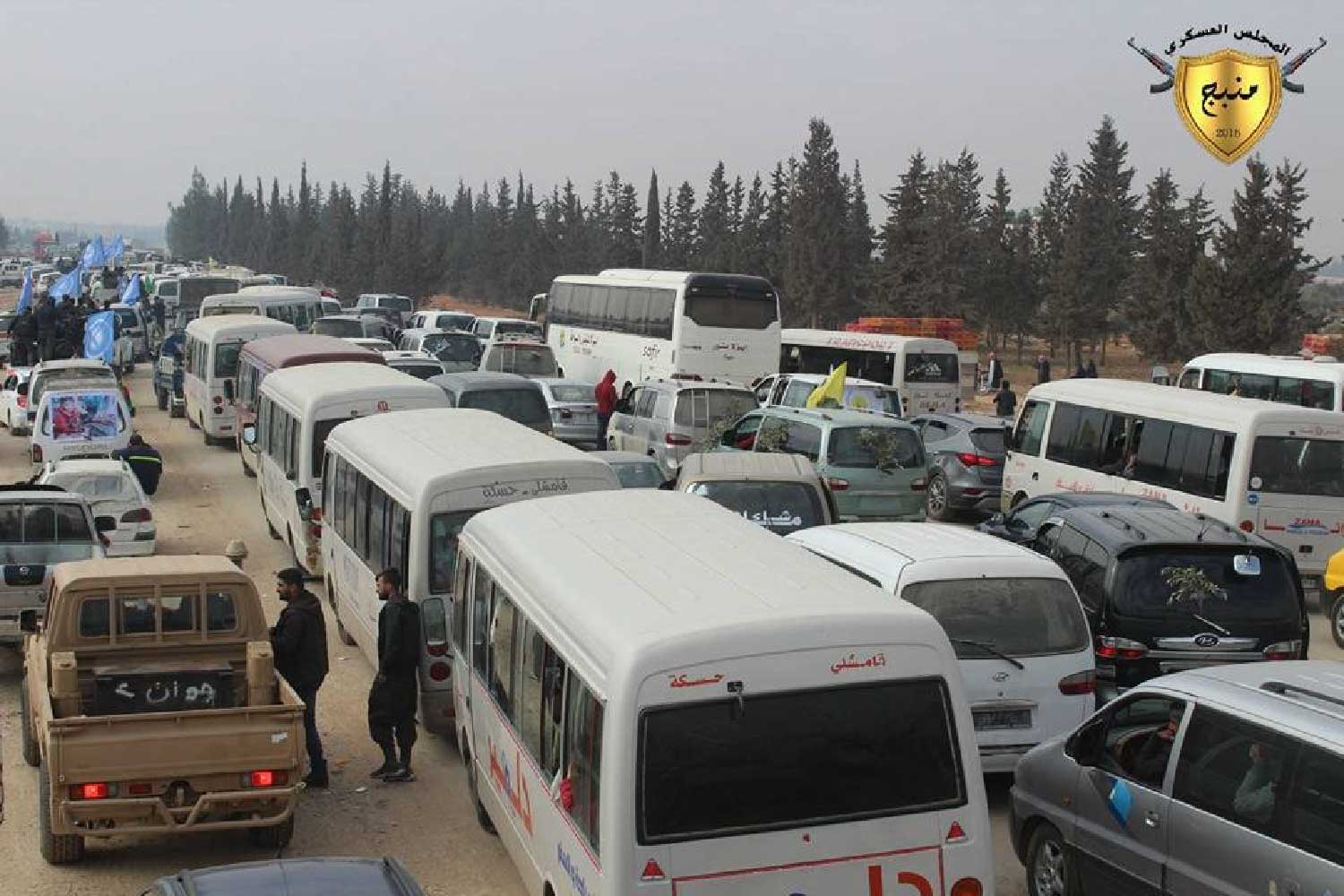
2. Syrian regime and pro-Iran forces, as well as US-backed forces, are reportedly amassing troops and fortifying their positions in the Euphrates region. According to both pro-opposition and pro-government sources, the two sides are preparing for possible skirmishes in the area.
3. February 10: Israeli airstrikes destroyed nearly half of the Syrian regime’s air defenses, according to the Israeli newspaper Haaretz, which cited “senior Israeli Defense Forces officials” in the article on February 14. An Israeli F-16 was shot down during the airstrike; however, Israeli officials considered the operation a success.
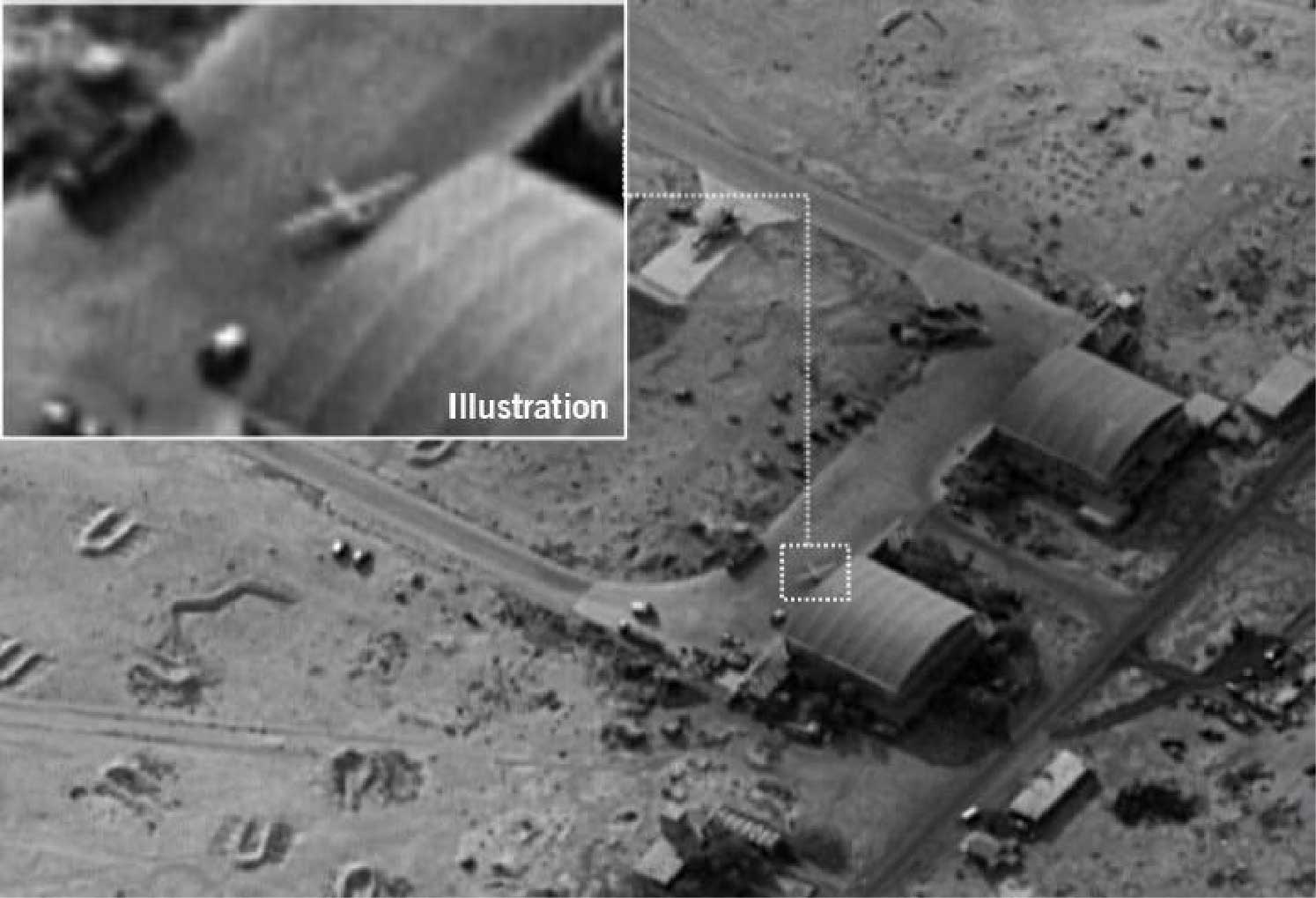
February 12: AnIsraeli military official said that an Iranian drone shot down 10 February 2018, ago was based on a US stealth RQ-170 UAV, which was captured by Iran in 2011. Iran started production of this drone in 2016.
